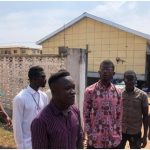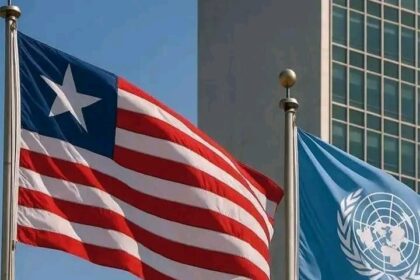President George Manneh Weah took over the mantle of authority on January 22, 2018 after a historic turnover ceremony from President Ellen Johnson-Sirleaf, becoming the first Liberian leader to be handed power through democratic means since 1944 when President William V.S. Tubman was inaugurated after the administration of Edwin Barclay. A week later, on January 29, 2018, President Weah proceeded to address the first session of the 54th National Legislature, explaining the state in which he had met the nation and what should be expected during the first year of his administration.
2018 would turn out to become President Weah’s toughest year, arguably due to the crippled economy he inherited from his predecessor. At some point in time, there would be an argument over how much was left in the nation’s coffers, with the new leader calling a certain figure while the old leader would rebut and call another figure. The payment of civil servants’ salary defaulted for over three months, with the new administration disturbed and finding ways out to solve the problem.
During that same year, the allegation of the missing L$16 billion would surface, even though it was later surmised that the money was brought into the country before his administration was inaugurated and that he had little or no knowledge about the money and its disappearance. The year would not end and the query of another US$25 million, which was fueled into the economy by international partners to stabilize the economy, would take center stage.
President Weah went on to address the second session of the 54th National Legislature on January 28, 2019, affirming that, even though the first year was not all rosy the state of the nation was strong and stable. This new year would be characterized by the rise of anti-government organizations, protestations and lack of cooperation from many individuals who served the previous government and still had influence to facilitate certain opportunities. Some opposition agents still in the administration would choose to release sensitive information to the opposition community, at the detriment of the government that incorporated them.
The infamous June 7 protest would be held in the middle of the year, drawing the attention of the world media to little Monrovia, with the aim of brining the Weah administration to international disrepute.
However, amidst all these rocky challenges, the administration maneuvered to leave indelible prints on the Liberian society—stabilizing the economy and restoring the image of the country in the comity of nations.
By July 2018, the Weah administration had launched the Coastal Project, which sought to prevent the problem of sea erosion.
As Liberian-dollar inflation had undermined the income of the poor and the income of those earning in Liberian dollars, the administration engaged the International Monetary Fund (IMF), which resulted in the signing of the Memorandum of Economic and Financial Policies. The Executive Board of the IMF approved an External Credit Facility of US$213.6 million. Shortly thereafter, US$23 million was disbursed under the facility to the Government of Liberia (GOL) through the Central Bank of Liberia.
The economy began to get back on course, with President Weah and his team making stride in other sectors of the Liberian society. Infrastructure development and road pavement were all on speed, with the Liberian leader making frantic effort to complete projects already started by his predecessor, including the Inter-Ministerial Complex, the RIA Terminal and VIP Lounge and the Japan Freeway, in additional to his personal signature projects, which include the 14 Military Hospital.

The Old Road market hall, 50 pro-poor housing units in New Kru Town, Unification Theater of Arts and other Weah-signature projects were all dedicated before the end of 2019.
In addition to infrastructure, the Coalition for Democratic Change government had adapted a policy to make public education tuition-free, pay the WAEC/WASSCE fees for all 9th and 12th graders and digitalize the University of Liberia (UL).

By February 2019, President Weah had signed into law the Kamara Abdullah Kamara (KAK) Act of Press Freedom. The KAK Act of Press Freedom strengthened and actualized Liberia’s commitment to several legal instruments signed onto, such as Freedom of Information Act, the Table Mountain Declaration and many others. Free speech and media freedom advocates hailed the President for demonstrating genuine commitment to protecting the basic tenets of Liberia’s fledgling democracy.
2018 and 2019 produced the stiffest opposition to President Weah’s administration, but he succeeded in delivering the needed development and developing the necessary policies to drive the country from bad to good. To be continued.






